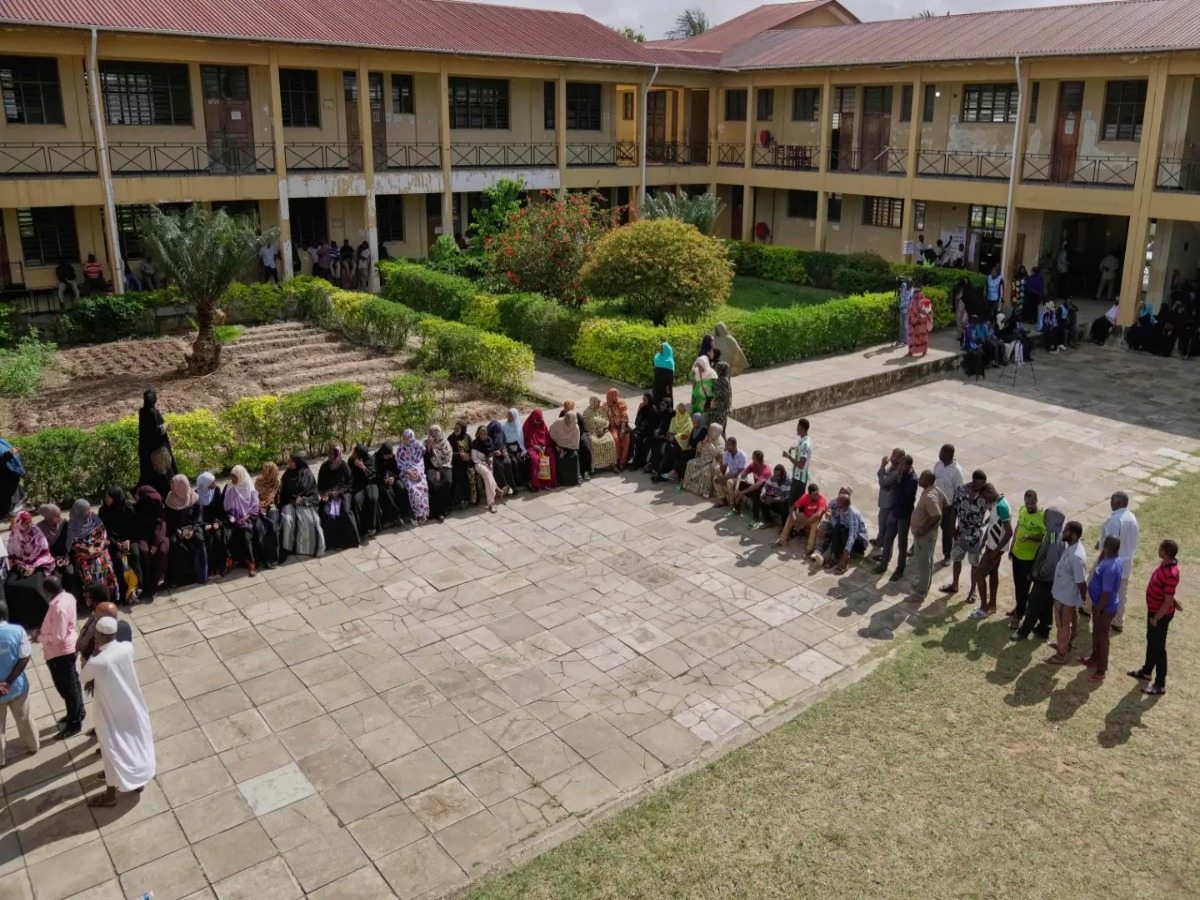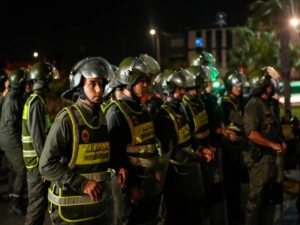Tanzania’s presidential election was rocked by chaos on Wednesday as widespread protests broke out, the military was deployed, internet access was disrupted, and a curfew was imposed in the commercial hub of Dar es Salaam.
Opponents of President Samia Suluhu Hassan, who is seeking her first full term, took to the streets to protest the harassment of opposition leaders and restrictions on electoral choice. The ruling Chama Cha Mapinduzi party has held power since independence in 1961.
The U.S. Embassy issued a security alert warning of “country-wide” unrest across the East African nation.
READ ALSO: Tanzania hit with internet disruptions on election day
Police Inspector General Camillus Wambura announced a 6 p.m. curfew in Dar es Salaam after hundreds of protesters in the Kimara and Ubungo districts set a bus and a gas station on fire. Local media reported demonstrations in the Magomeni, Kinondoni, and Tandale neighborhoods, while polling stations were vandalized in other regions, including Arusha and Mbeya, outside the capital of Dodoma.
Military personnel were deployed in Dodoma and Zanzibar, including along streets housing media outlets. Dar es Salaam Regional Commissioner Albert Chalamila told reporters that security forces were prepared to handle any “disruptors of peace.”
Netblocks, an internet advocacy organization, reported a “nationwide disruption to internet connectivity.”
Human rights groups have long accused the government of arresting, detaining, and intimidating critics and opposition members. Tundu Lissu, the leader of the main opposition CHADEMA party, is in prison facing treason charges after calling for electoral reforms, while the candidate from the second-largest opposition party was blocked from running.
Amnesty International described the pre-election environment as one marked by fear, citing verified incidents of enforced disappearances, arbitrary arrests, and extrajudicial killings.
READ ALSO: Rights abuses and political crackdown cast shadow over Tanzania’s election
Preliminary results were expected within 24 hours, though the electoral commission has up to seven days to announce final outcomes. Early observations showed low voter turnout, particularly among younger citizens. University student James Matonya told The Associated Press that he skipped voting because he viewed the election as a “one-horse race.”
Hassan is vying for her first full term after completing the term of her late predecessor, John Magufuli, who passed away in 2021. Sixteen candidates from smaller opposition parties also appeared on the ballot. There was no immediate statement from the president or the ruling party as events unfolded.
Tanzania has more than 37 million registered voters, a 26% increase from 2020, but analysts warn that widespread voter apathy could affect participation, as many expect Hassan to win comfortably.
In Zanzibar, the semi-autonomous archipelago, opposition party ACT Wazalendo alleged irregularities during early voting on Tuesday, including instances of voters impersonating security officials and the exclusion of party representatives by electoral staff. The electoral commission maintained that the early voting process complied with the law.
READ ALSO: Police arrest top opposition politician days before Tanzania’s election










